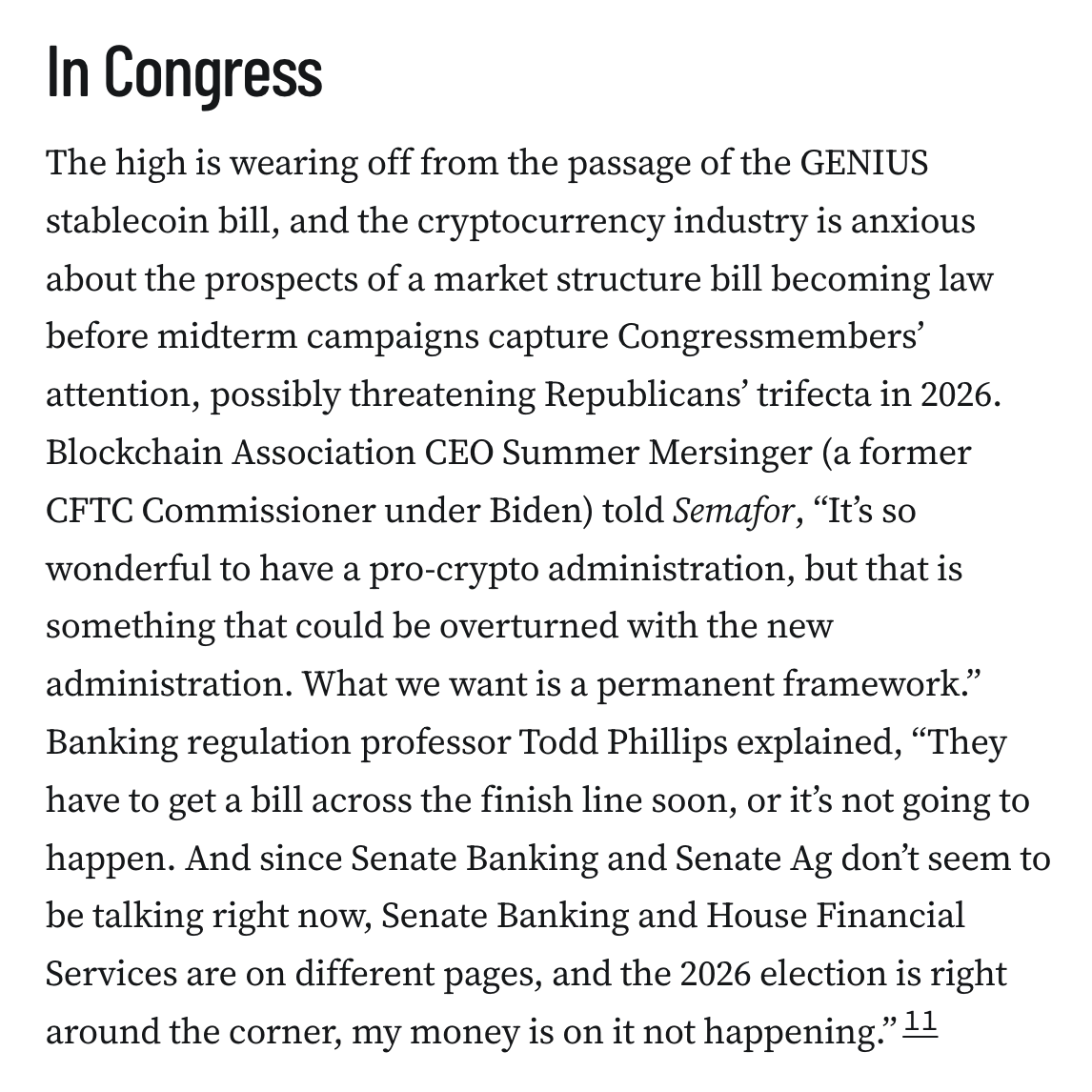Newsletter: The Trump administration cracks down on software to limit surveillance of crypto transactions, while celebrating a “deregulatory blitz” tailored for its billionaire benefactors
A jury convicted Tornado Cash developer Roman Storm on the least severe of three charges, and was unable to reach a verdict on the other two. Storm plans to appeal, and it remains to be seen whether prosecutors will attempt to retry the other two charges.
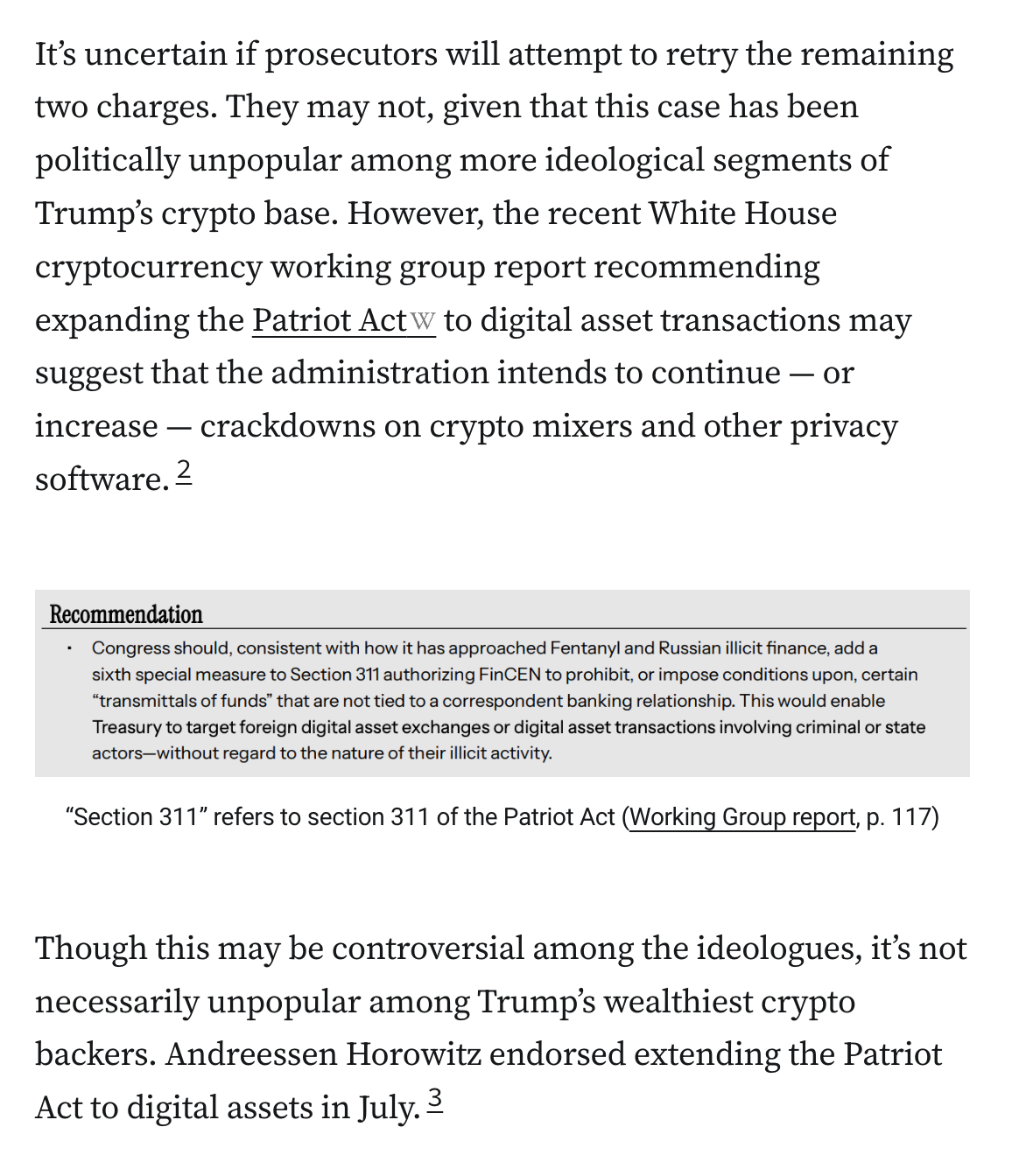
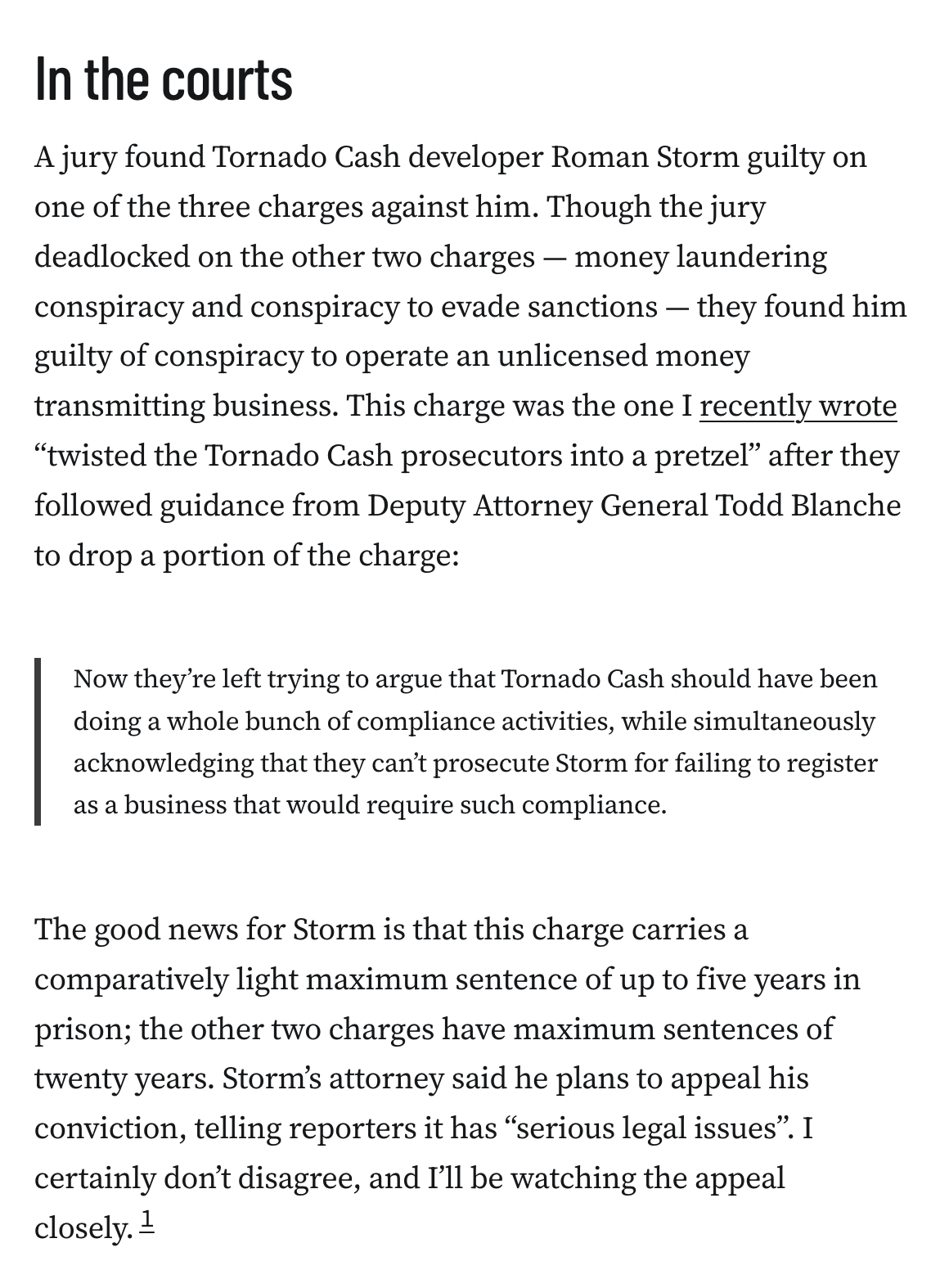
Do Kwon, founder of the Terra/Luna stablecoin ecosystem that underwent a $40 billion collapse in 2022, has reached a plea deal that will give him a maximum of 25 years in prison (rather than life). Prosecutors will recommend no more than 12.
Some in crypto are anxious about the prospects of a market structure bill (like the Clarity Act) becoming law before the midterms. “It’s so wonderful to have a pro-crypto administration, but that is something that could be overturned with the new administration.”
The Paxos stablecoin issuer paid $48.5 million to settle with New York state financial regulators over insufficient anti-money laundering and due diligence. Days later, they applied for a national trust bank charter to become more enmeshed with the banking system.
![Only days after the settlement, Paxos joined Ripple, Circle, and other cryptocurrency companies in applying for a national trust bank charter, which would put the firm under federal OCC supervision and more closely integrate it into the traditional financial system.13 Crypto-friendly regulators are being installed at various federal agencies, including former blockchain executive and newly confirmed Comptroller of the Currency John Gould [I88]. Paxos and other crypto firms, in seeking these charters, may be hoping to reduce their exposure to state regulators — particularly in places like New York — that have continued to police crypto company abuses, and instead operate primarily under more permissive federal oversight.](https://media.hachyderm.io/media_attachments/files/115/023/432/856/953/720/original/ff3ac152ca95ddb4.png)
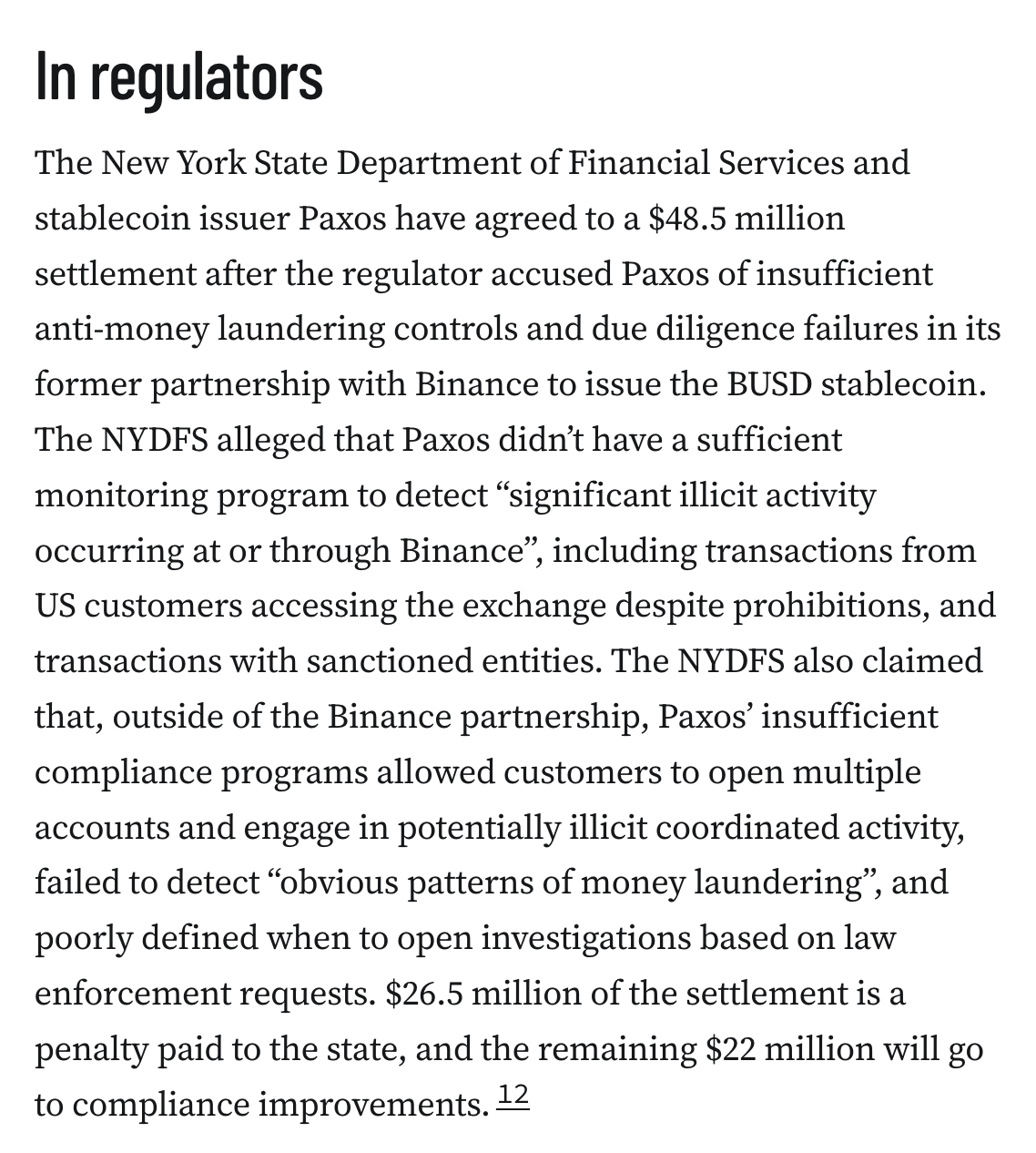
Trump’s nominee for CFTC Chair, Andreessen Horowitz’s Brian Quintenz, is facing scrutiny for emails seeking confidential information from the agency that could present a conflict of interest as a shareholder and board member of the Kalshi prediction market platform.
Crypto’s Winklevoss twins have also been privately pressuring Trump to rescind the nomination, after deciding Quintenz is insufficiently Trump-aligned. They also dislike that he suggested the CFTC should receive more funding if its mandate is expanded to oversee the crypto industry.
Crypto Council director Bo Hines has abruptly resigned, to be replaced by Patrick Witt. Like Hines, Witt’s qualifications seem to mostly involve playing college football and losing elections. Witt has also claimed in the past that he was passed over by the NFL because of a sexual assault accusation.
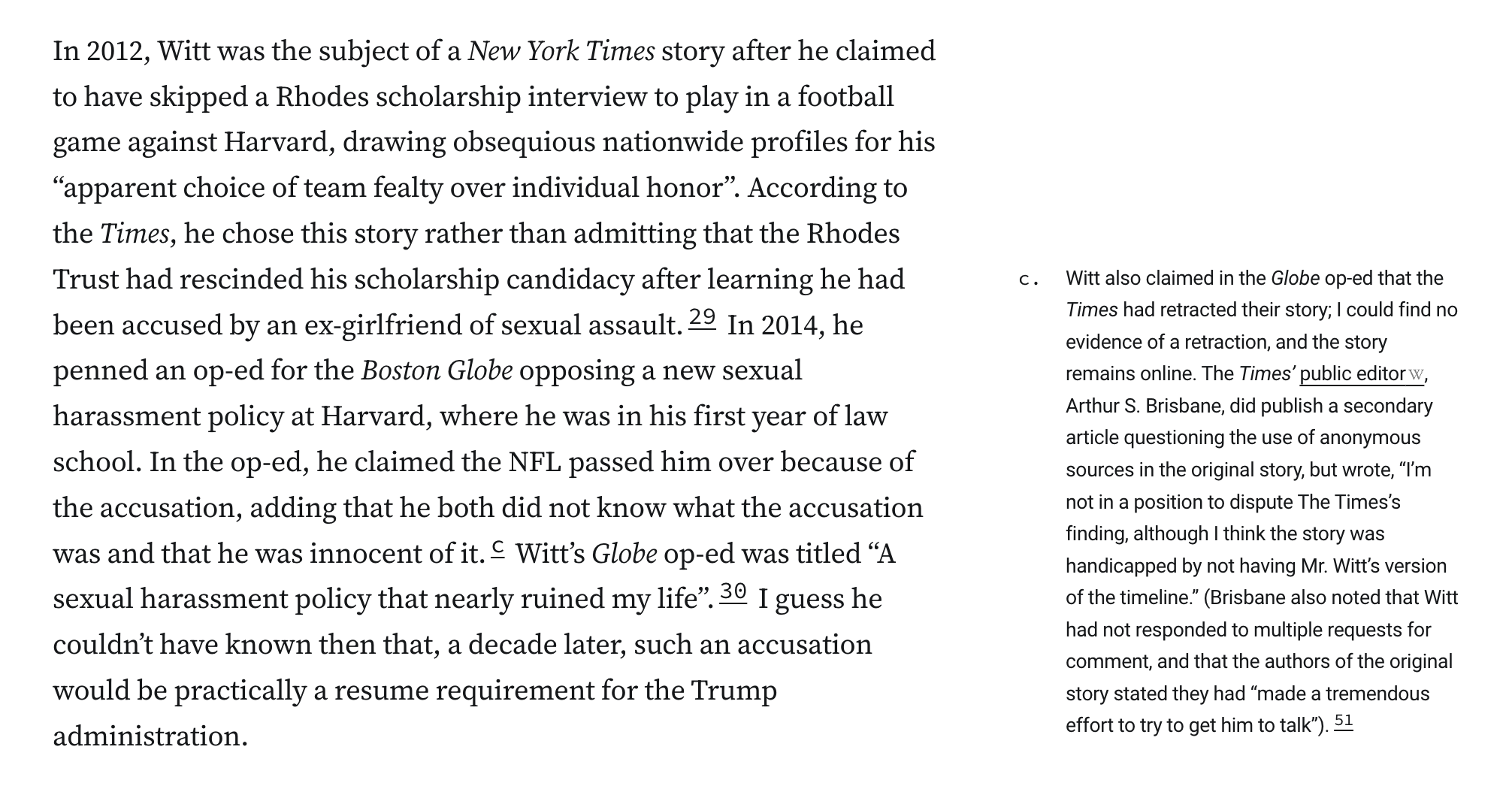
![Bo Hines, former director of the President’s Council of Advisers on Digital Assets, abruptly announced his departure to return to the private sector. He will be replaced by his deputy, Patrick Witt. Like Hines, Witt’s qualifications also seem to involve playing college football and failing to be elected to Congress [I72] — though Witt spent time during the first Trump administration at the Office of Personnel Management, and then on Trump’s legal team fighting to overturn the results of the 2020 election.2728 Witt ran for office in 2022, with an aborted bid for the Republican nomination for Georgia’s 10th Congressional district and then an unsuccessful campaign to become the state’s Insurance and Safety Fire Commissioner. He lost the Republican primary for the latter, despite a Trump endorsement and promises to “keep your insurance from going woke”.27](https://media.hachyderm.io/media_attachments/files/115/023/453/891/316/519/original/3276c8694d633a68.png)
bonfire.cafe
A space for Bonfire maintainers and contributors to communicate
![Terra/Luna founder Do Kwon has also reached a plea deal, pleading to two of nine original charges in connection to the $40 billiona collapse of his stablecoin scheme in 2022 [I73]. He faces a maximum sentence of five years on a wire fraud charge and up to twenty years on a fraud conspiracy charge, which could run consecutively. If Kwon accepts responsibility and doesn’t commit new crimes, the government will push for no more than a twelve year sentence (though the judge isn’t required to accept the government’s suggestion). Kwon has also agreed to forfeit some properties and up to $19 million, and pay restitution.6 He also still faces charges in South Korea.](https://media.hachyderm.io/media_attachments/files/115/023/423/490/150/396/original/95550a80e7dc2fe3.png)
